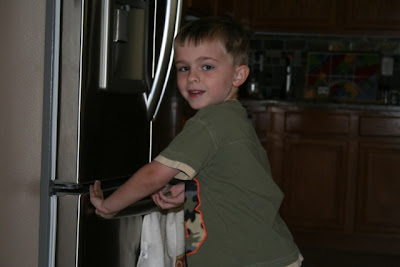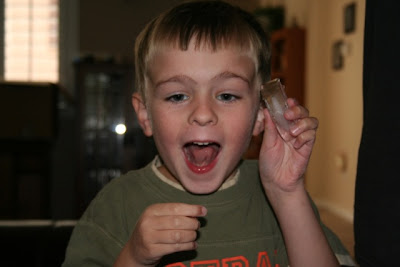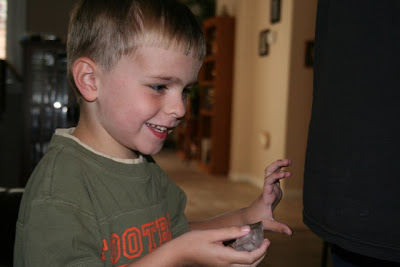I just recently became aware of the NPR list of Best Young Adult Fiction. I came across this list because of a small controversy resulting from a book they excluded: Ender’s Game by Orson Scott Card. The controversy isn’t about Ender’s Game specifically, but about why it was excluded balanced against what made the list.
While I’m definitely a fan of Ender’s Game, and the saga this book begins, this post isn’t about arguing why Ender’s Game should or should not be on a list of acceptable YA novels. Instead, it seems one of two things is happening at NPR: 1) giving NPR the benefit of the doubt, they’ve confused what it seems should be the obvious difference between a young adult and a child, or 2) NPR has an agenda and has excluded Ender’s Game based on either a bias against the book (unrelated to the discussion about age-appropriateness) or the author. While the latter is possible, the more important issue is about how we as parents decide to put appropriate material in front of our kids: books, movies, etc.
NPR says they excluded Ender’s Game (as well as at least one other book) from the final list because “while Ender himself is young, the book’s violence isn’t appropriate for young readers.” Even so, they still included other books like Lord of the Flies and Dune on the final list, both of which contain stunning depictions of violence. This exposes two problems. NPR acknowledges the first: “no reader’s poll will ever be truly objective.” If for no other reason, a panel of judges can’t and won’t ever apply a rigid standard to a body of diverse literary works, each of which is unique. The best we’ll ever get is an organized mess. The second problem revolves around what they asked for: recommendations for a list of the Best Young Adult Fiction.
When I see “young adult” I take the words at face value and acknowledge the phrase very obviously includes the word adult. While 13 seems to be a generally agreed upon age for differentiating child from young adult, there isn’t a clear line. Why? To state the obvious again: like every adult in the world, every child is an individual with a complex set of reasons why they are who they are. At a specific age, some kids excel at certain things while others don’t. Some fear things that others don’t. They each deal with all the aspects of life presented to them differently and this is true for violence. My problem with what NPR has done trying to compile a YA list of books is that they showed us they don’t have the ability to differentiate between children who aren’t yet young adults, and those who are.
I suggest there’s really only one body, one committee, one panel of judges that can form such a list of movies, literature, songs and other wonderful manifestations of art: each child’s parents. For each child, the panel of judges is as large as the parents responsible for that little person. (NPR: the number tends to be one or two, unless you include extended family.) Mom and Dad, are you familiar with what your kids are reading? Have you read the material yourself? Hopefully, to the best of your ability, the answer is “yes” to both questions. No one knows your child better than you do, or no one should. Other parents, friends, teachers: they’re all an incredible part of the cultural cloud that we and our kids operate in and draw support from, but your child is your child, not theirs. With all due respect to those who advocate the position that “it takes a village” what that village contributes is and should always be limited. My wife and I had our son. He is the human product of our love for each other. Sorry village, but you weren’t there; the door was locked and the blinds were drawn, on purpose. And now our son first and foremost is our responsibility to raise. Village, and NPR, you are the supporting cast.
Are lists like the one NPR created valuable? They sure are, but often, they end up being only interesting. Regardless of who creates a list like this, I hope parents don’t use it as a suitable substitute for exercising their own judgment. I remember several of the books on the NPR list. There are many I’ve never read and some I’ve never heard of. In the end, my wife and I will focus our son on the books we know are proven based on our own reading, then on the recommendations of people we know and trust. For unknown books, we’ll probably read them first, at least until we know our son is old enough to make determinations on his own about the value of what he can take away from any piece of literature. We’re also aware this is constant work since that list will change constantly, with his age and experience.
So what is a young adult? Well, I suspect it’s similar to art: I can’t give you a rigid answer but you’ll know it when you see it. NPR, I think you bit off more than you could ever chew and I’m not sure your list really matters. It’s too long and you can’t lock down what you meant when you said “young adult.” I know my own son though and will continuously put good books in his hands as a child, into his young adult years once he’s there, and even when he’s indisputably an adult. And yes, he’ll definitely read Ender’s Game when he’s old enough, probably when he’s a “young adult.”
This parenting stuff is hard, but I wouldn’t trade it for anything else in the world!
You can find my review of the original four Ender's Saga books (Ender's Game, Speaker for the Dead, Xenocide and Children of the Mind) under my profile on Goodreads.
You can find my review of the original four Ender's Saga books (Ender's Game, Speaker for the Dead, Xenocide and Children of the Mind) under my profile on Goodreads.
It’s great to be a dad!
Here are links to the original article and NPR posts that caught my attention:
- http://www.enderwiggin.net/2012/07/24/npr-calls-enders-game-too-violent-young-readers/
- http://www.npr.org/2012/07/24/157072526/best-ever-teen-novels-vote-for-your-favorites
- http://www.npr.org/blogs/monkeysee/2012/07/24/157311055/best-ya-fiction-poll-you-asked-we-answer
- http://www.npr.org/2012/07/24/157111862/young-adult-fiction-finalists









